
Westerns are defined as films and television shows set in the American West, Central or South America of the mid to late 19th century and gunslingers are almost always involved. So none of the Mad Max or Star Wars movies count. With shoot-'em-ups making a cautious comeback, it seemed like a good time to separate the good from the bad and the ugly.
15. The Warrior's Way
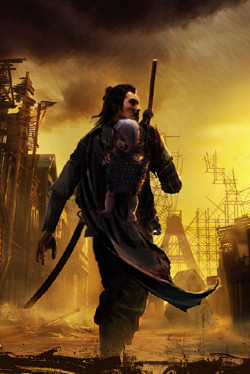
The Warrior's Way boasts much more style than substance. But since that style is visual and damned near boundless, it's more than enough -- since this is a movie and not a novel.
Asian immigrants have a long and storied history in the American West and as a consequence, they have played a role in many a Western -- not all of them respectful. Warrior's plays around with the Western stereotype of Asians and turns it on its head.
The story centers on a legendary swordsman who makes his way across the Pacific Ocean out of necessity when he disobeys an order given by the head of his clan. He eventually settles in a town and into precisely the job anyone familiar with the genre would expect him to have -- the operator of the town laundromat. But this particular laundry operator only took the job in order to blend in and begin a new life. He doesn't even know what he's doing. His expertise lies not in cleaning clothes but in splattering blood on them. So when the local gunslingers come around looking for victims things gets messy.
14. Hang 'Em High

Hang 'Em High is a revenge tale. But it's also a commentary on the inadequacies of the justice system -- both the vigilante kind and the official, legally-sanctioned criminal justice system. Most Westerns underscore the point that the Old West was a cold, heartless place -- and this one is no different -- except that High emphasizes the notion that some of the harshness can be attributed to "good" people "doing the right thing". An impromptu posse lynches an innocent man who is offered no trial. On the other hand, a judge insists on executing two teenagers, who are clearly not irredeemable, simply to send a message.
13. Horizon: An American Saga

High Noon differs from most other Westerns in that it takes place over the course of a single day -- less than a day, actually. The story concerns the newly-married Marshal Will Kane, who's retiring his badge and gun so that he can settle down with his bride into a peaceful life as a store owner. The problem is, Frank Miller, one of the outlaws Kane put away, is due back in town -- Hadleyville -- after arriving on the noon train in order to exact revenge. Miller doesn't plan to come for Kane alone either. His gang intends to meet him at the train station and ride into town with him.
The missus, a Quaker, is a pacifist who advised her husband to just walk away -- at high-speed. It doesn't take long before the advice becomes an ultimatum: "Leave with me on the noon train or find a new wife!" The problem with that plan is that Kane feels a duty to protect the townspeople from the rampaging gunslingers and Miller and company aren't the types to give up easily anyway. They'll just track him to his new town. After turning to several people for help -- and I mean several -- the lawman gradually comes to the realization that he just may be on his own. At one point he even writes his will while checking the clock. In the words of Buddy Love: "Ain't that a bitch?!"
By the way, one of Frank Miller's enforcers, Jack Colby, is played by Western veteran Lee Van Cleef (he's also in For a Few Dollars More, and of course, The Good, the Bad and the Ugly -- he's "The Bad"). Western movie regular John Wayne was initially offered the lead role but turned it down citing the fact that he didn't like the film's message. In a profanity-laden 1971 interview for Playboy magazine, the ultra-conservative "actor" disparaged the classic film (he also disliked The Wild Bunch) and said that it was "the most un-American thing I've seen in my whole life." During that same interview he said that he believed in white supremacy and that, "I don't feel we did wrong in taking this great country away from them...There were great numbers of people who needed new land, and the Indians were selfishly trying to keep it for themselves." I shit you not. There's a scene in Die Hard in which the head "terrorist", Hans, discussing cowboys, mentions John Wayne walking off into the sunset with Grace Kelly (Marshal Kane's wife, Amy). John McClane corrects him and delivers the classic line: "Yippee ki-yay, motherfucker."
11. High Plains Drifter

High Plains Drifter, the first Western directed by Clint Eastwood (its star), is sort of "the road not taken" in High Noon. While Marshal Kane took the high road, Marshal Duncan most certainly does not.
10. 3:10 to Yuma (2007)

3:10 to Yuma is an unassailable argument for the value of remakes. If you've ever wondered how things would turn out if a classic shoot-em-up was re-done in color, this is the answer -- provided you fill the roles with great actors and crank the action up a few notches. But not so far that the violence is mindless. It also wouldn't hurt if you pumped up the realism.
Yuma is Russell Crowe's second chance at cowboy greatness and he nailed it (It's also his best turn as a villain -- You're better off skipping Virtuosity). Apparently, The Quick and the Dead, Crowe's first American movie, was just a rehearsal. Like his co-stars, Gene Hackman and Leonardo DiCaprio, his Western do-over is Hall of Fame-ready.
Like High Noon, timing is everything. But instead of awaiting a dangerous outlaw's imminent arrival on a train, the point in Yuma is to ensure that a dangerous outlaw departs on a train. The black hat is Ben Wade, the murderous leader of a gang of stagecoach robbers. Wade gets himself captured by the law in the Arizona town of Bisbee (23 miles southeast of Tombstone), but the locals don't have the resources to stop the killer's gang from liberating him. So, the idea is to get him on the afternoon train and off to the Yuma Territorial Prison in none other than the town of Yuma (duh). No stranger to Westerns, the prison is also referenced in The Wild Bunch, Hombre and The Comancheros. An outlaw is even put on a train to the facility in Once Upon a Time in the West. Anyway, Civil War veteran-turned-rancher (he fought for the Union) Dan Evans is deputized and hired for $200 to escort Wade to the locomotive. He needs the money because his landlord is threatening to evict him and his family from his land. But he also wants to teach his son that doing the right thing is worth any risk.
9. A Fistful of Dollars

A Fistful of Dollars is actually a remake. It's an unsanctioned English-speaking adaptation of the Japanese classic Yojimbo, which revolved around the exploits of a samurai rather than a gunfighter. Dollars marks Clint Eastwood's first starring role and the first installment in the "Dollars Trilogy", which includes For a Few Dollars More and The Good, the Bad and the Ugly, and popularized the Spaghetti Western subgenre.
8. The Good, the Bad and the Ugly


The Good, the Bad and the Ugly is the finale to what is sometimes known as the "Man with No Name Trilogy". The Spaghetti Western epic, which is known just as much for its score as for its gunfights, celebrates its 50th anniversary this year.
The story revolves around "Blondie" (The Good) and Tuco Ramirez (The Ugly), a couple of con artists who routinely ride into town and swindle the locals out of a few thousand dollars in reward money. See, Tuco is a wanted man and Blondie turns him in to the local law only to rescue him from the gallows so that the two can find another town and cash in again -- and again. Until the gringo abruptly ends the partnership by stranding Tuco in the desert. This, of course, turns the two comrades into mortal enemies. Eventually, the two learn about a hidden stash of stolen gold, only each has one piece of information vital to locating the treasure, but neither has all of the particulars. Thus, the partnership is reborn. Meanwhile, hit man Angel Eyes (The Bad), who's been on the trail of the gold from the start, crosses their path and the bullets start to fly.
Clocking in at just three minutes shy of three hours, The Good is undeniably a long ride. But it's worth the wait. Whatever you do, stick around for the three-way gunfight.
7. The Revenant

The Revenant is certainly a Western. But it veers so far off of the beaten path that you never get the sense that you're watching the same old, same old. For one, most Westerns are virtually draped in dust and beating sun rays. Neither is present in The Revenant. In their place is gloomy cloud cover and snow. Snow as far as the eye can see. No one is reeling from oppressive heat. No one is wearing a Stetson and there are no wind-swept plains. Nor are there any cowboys to be found. The profession of choice here is fur trapping.
And before you suspect that it's not an authentic member of the genre, let me make it clear: The Revenant is brimming with shootouts, horseback riding, and conflicts between caucasians and Native Americans.
That conflict, however, diverges from the well-worn Western blueprint in that the Native Americans, of the Arikara tribe, as aggressive and brutal as they are, are not depicted as mere savages. They are respected at least as much by the film as the palefaces. Their motivations are given voice and they are never demonized.
As hard as it is to believe, many of the people in the movie, including General William Henry Ashley, Jim Bridger, John Fitzgerald and Hugh Glass, were real people. The film was marketed as being based on a true story, and while historians are in disagreement about the idea of Glass having had a son with a Pawnee woman, as well as Fitzgerald's violent death, the rest of the movie seems to be more or less historically accurate.
6. The Harder They Fall
5. The Magnificent Seven (2016)
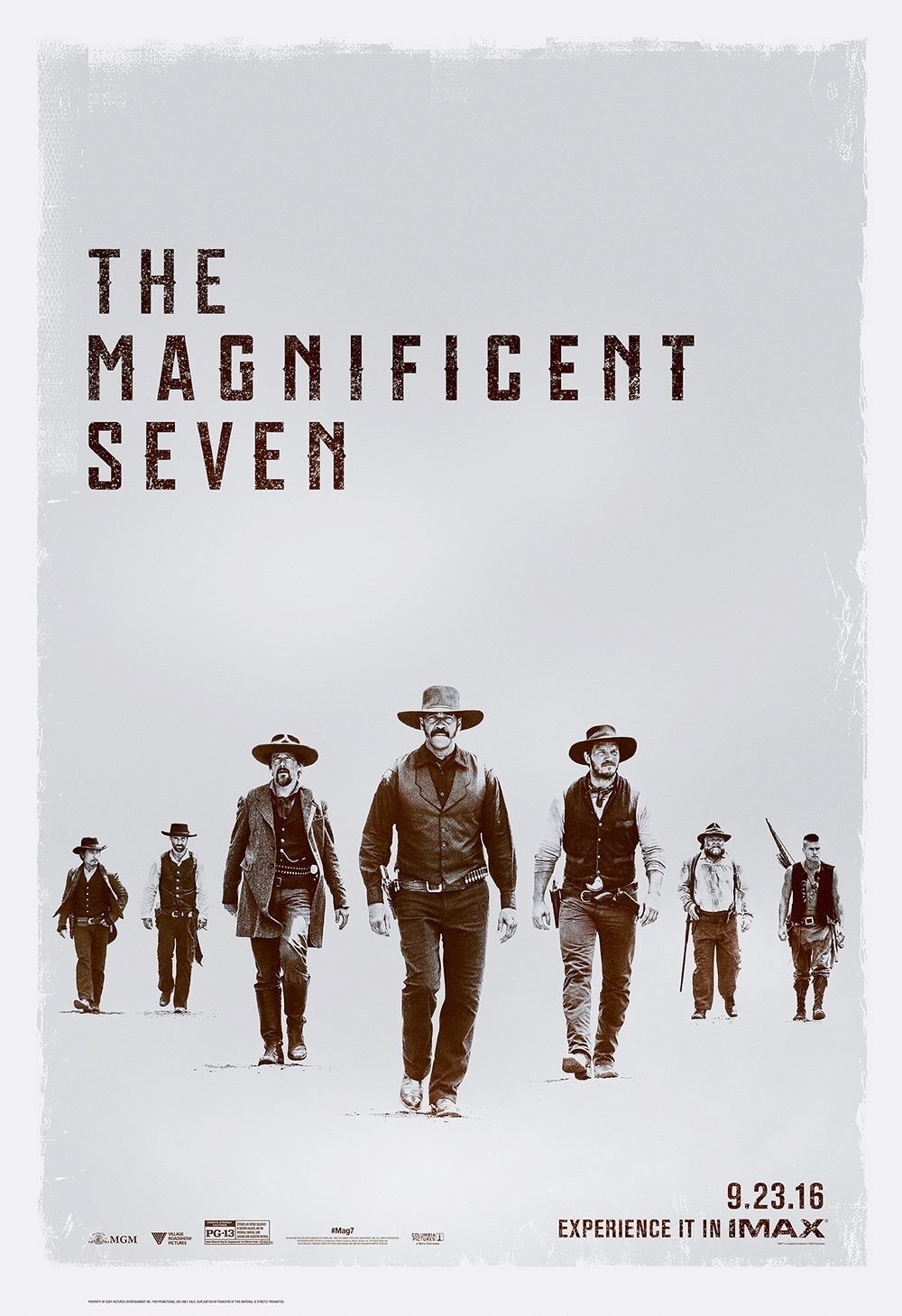
4. Hell or High Water*
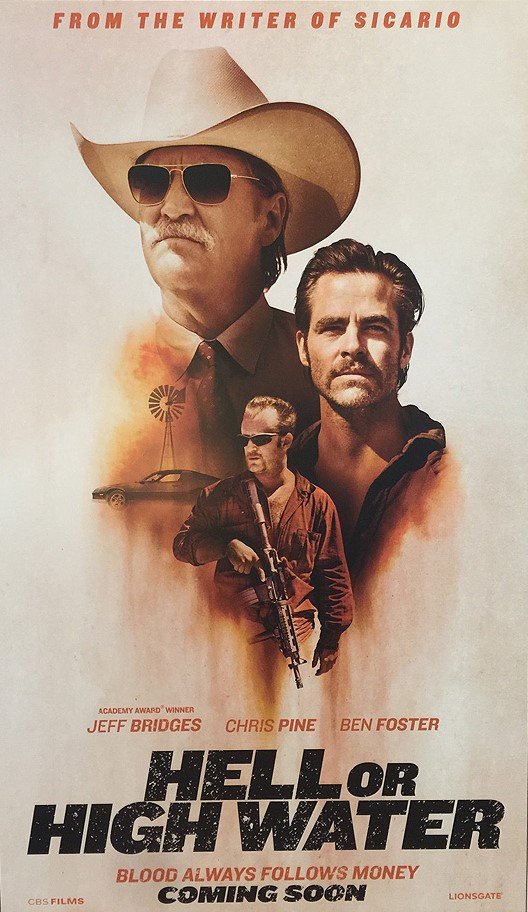
One of the best modern Western films (and best films period) to be released in 2016 is the movie Hell or High Water. This movie is great on so many levels.
First, the storyline is so original from anything that has been released in recent times. Without giving anything away, what at first appears to be just a "bank robber" film ends up being more than that. You have to understand the reason for what has transpired and, while you personally might not agree with it, you do feel for the main characters and why things develop as they do. Also, the directing is wonderful and the pace just enough to keep you intrigued and makes you want to see what happens to the characters. Next is the cinematography/scenery. The setting of this film is among the ranches in Texas and the visual imagery is just amazing. It is like each scene, particularly when viewing the countryside and ranches, is a work of art. There is one scene in particular where the two brothers, played excellently by Chris Pine and Ben Foster, are enjoying some time with each other on their ranch and no talking is even needed. You can sense the connection between them as family and the view/backdrop adds so much to that scene. Amazing work.
Finally, the acting. Each person in this film is unbelievable, especially Chris Pines and Jeff Bridges. Yes, Jeff B. once again, I believe, outdoes himself. It is like he IS his character and the emotions he exudes just make you feel like he is a real person. I was pleasantly surprised by Chris Pine and he should be nominated this year, in my opinion, for his performance. This is a wonderful, wonderful film and one I will remember for a long time!
3. Unforgiven

Don't call it a comeback. It had been quite a stretch between 1985's Pale Rider and Unforgiven's release in August of 1992, but Clint Eastwood had made great Westerns for years -- both in front of and behind the camera. At times he pulled double-duty on the same film -- starring and directing. That was the case here. Eastwood teamed up with Morgan Freeman in what would be the first of a pair of great and Oscar-winning films starring the duo (the other being Million Dollar Baby).
Unforgiven is unique in that it suggests that while the good don't necessarily die young, neither do all gunfighters. The film provides a glimpse into what happens after the gunslinger rides off into the sunset.
It's not the story, but one of the stories of retired gunman William Munny. As the movie makes clear, he has quite a few. He's not alone either. Many of the assorted triggermen who gravitate to Big Whiskey (the setting of most of the film's bloodshed) have led violent lives. One, English Bob, even travels with his own personal biographer eager to record stories of duels and shootouts. The town's sheriff, Little Bill Daggett, himself a former gunman, had seen so much killing that he's decreed that no firearms or criminals be allowed to enter the municipality. Freeman's Ned Logan is a rarity in Western fare, but one quarter of American cowboys -- such as Nat Love -- were African-Americans.
These men, all past middle-age, have moved on from criminal pasts. Logan is happily married; Daggett's biggest source of pride is the house he's building with his own hands; Munny is a pig-farmer and widowed father of two; and Bob is writing his memoirs. But habits are hard to break and they all re-embrace the savage inside to some degree -- and all voluntarily.
You can't help but to consider Unforgiven in the context of Eastwood's previous Westerns and to conclude that Munny's life is a potential future for characters such as Josey Wales and Blondie from The Good, the Bad and the Ugly.
2. The Outlaw Josey Wales

I'm a little conflicted about this one. The title character fought on the wrong side of the Civil War (for the confederacy), but the movie does make it clear that his sole reason for joining the fight is the fact that his family was murdered.
The Outlaw Josey Wales, which turned 40 this summer, easily has the best quotes of any Western, bar none. They include:
"You gonna pull them pistols or whistle 'Dixie'?"
Kid: "What about them fellas? We gonna bury 'em, Josey?"
Josey: "Hell with them fellas. Buzzards gotta eat too -- same as worms."
Bounty Hunter: "A man's gotta make a living."
Josey: "Dying ain't much of a living, boy."
Josey: "Every time I get to liking somebody, they ain't around long."
Lone Watie: "I noticed when you get to disliking somebody, they ain't around long neither."
1. For A Few Dollars More

- Ran and John Z.*
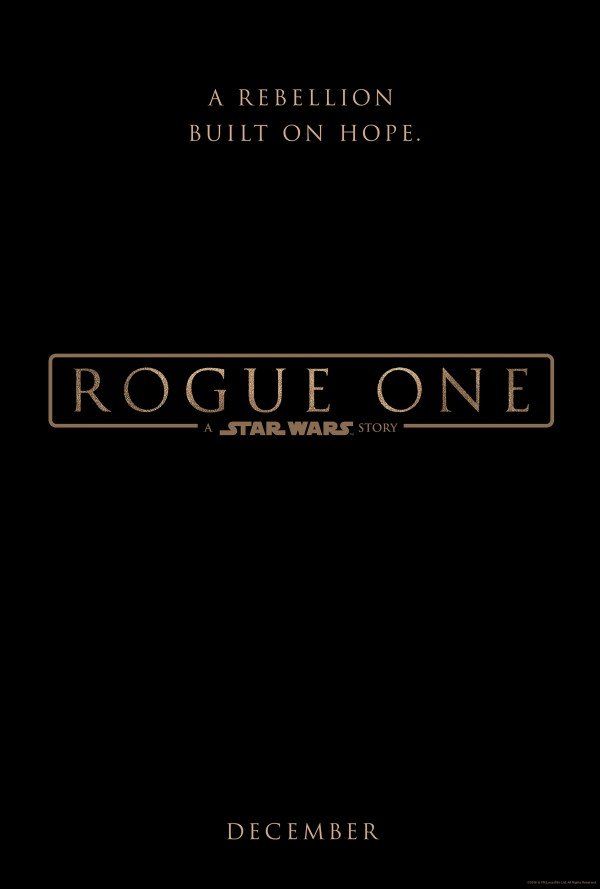
The Best Films of 2016

New Jack City
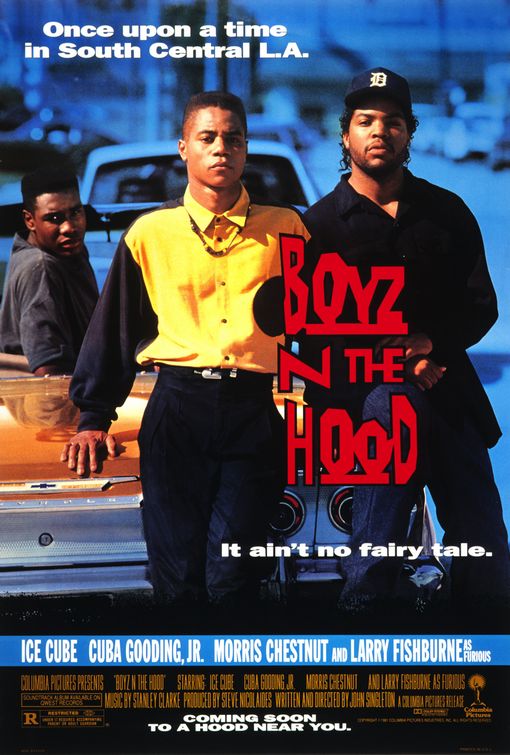
Boyz N the Hood



Very good list here...I am going to have to see Posse as it sounds like a great film. The only thing I would change, which is very debatable of course, is that I would make 'The Outlaw Josey Wales' the #1 Western film. As stated in your review, there are so many great one liners in that film and I also love that the movie was primarily based on the fact that Clint's character reacted to the murder of his family and not on his political view. The storyline, action and acting just make this an excellent film.
ReplyDeleteThe one movie that I cannot fathom being so popular is 'Unforgiven.' I will probably have to see it again to see if I have a change of opinion but I just did not get it the first time.
The one movie missing here is definitely one of the top 5 Western movies and that is 'Hell or High Water.' This is by far one of the best films of 2016. The acting is brilliant and the cinematography amazing. There are scenes in that film that do not even require speaking as the actor's convey their thoughts and emotions with their facial and body language. The musical score is also brilliant. This film should be recognized come Oscar time and if not then there is no justice.